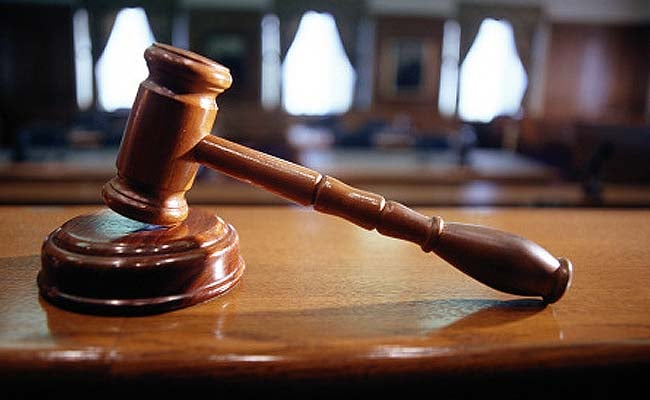
Representational photo
New Delhi:
The Government will press for introduction of audio-video recording of court proceedings before a Supreme Court panel, maintaining that it enhances transparency and discourages witnesses from retracting statements.
It will urge the e-Committee of the top court to allow audio-video recordings more than a year after a similar request was turned down by the panel.
To begin with, the facility is being mooted in subordinate courts.
The government believes that proposed electronic recording of court proceedings would usher in transparency as it would discourage witnesses from retracting their statements. Also, re-recording of witnesses statements often leads to unwarranted delay in trials and adds to the pendency list.
There are over 3.2 crore cases pending in various courts.
Of this, almost 2.8 crore are pending in subordinate courts alone, according to data compiled by the Law Ministry.
The action taken report by the Law Ministry presented recently before the Advisory Council of the National Mission for Justice Delivery and Legal Reforms stated that Law Commission Chairman Justice (retd) AP Shah had proposed undertaking audio-video recording on pilot basis in some district courts.
"A proposal may be considered to undertake audio-video recording on pilot basis in some district courts because such a step can enhance transparency in the justice system," he had said at an earlier meeting.
The Law Ministry said that "e-Committee is being requested for reconsideration of issue relating to audio-video recording of court proceedings."
The action taken report on the meeting held in January this year was presented in the latest meeting of the Council held on July 15.
"...allowing such recordings can contribute to transparency of court processes by allowing a precise record of the proceedings and at the same time discouraging improper conduct in courts and wastage of court time. The efficiency of courts can also be enhanced by maintaining standard system generated formats of routine judgements and orders, particularly in civil cases, which may be used by courts for quick delivery of judgements," the Ministry said in the meeting.
The top court had recently dismissed petitions seeking approval for video recording of judicial proceeding. The view was that court system in the country has not reached the level where the video recording of court proceedings can be permitted.
A proposal to include audio-video recording in Phase-II of the e-Courts Project was placed before the e-Committee of Supreme Court by the Law Ministry in January last year, but it was decided that video recording should not be included in Phase-II of the e-Courts Project.
The Phase II of the e-Courts Project was approved by the Union Cabinet earlier this month.
In the first phase, the government had computerised all the courts across the country, set up local area network and connected these courts with the national judicial data grid.
It will urge the e-Committee of the top court to allow audio-video recordings more than a year after a similar request was turned down by the panel.
To begin with, the facility is being mooted in subordinate courts.
The government believes that proposed electronic recording of court proceedings would usher in transparency as it would discourage witnesses from retracting their statements. Also, re-recording of witnesses statements often leads to unwarranted delay in trials and adds to the pendency list.
There are over 3.2 crore cases pending in various courts.
Of this, almost 2.8 crore are pending in subordinate courts alone, according to data compiled by the Law Ministry.
The action taken report by the Law Ministry presented recently before the Advisory Council of the National Mission for Justice Delivery and Legal Reforms stated that Law Commission Chairman Justice (retd) AP Shah had proposed undertaking audio-video recording on pilot basis in some district courts.
"A proposal may be considered to undertake audio-video recording on pilot basis in some district courts because such a step can enhance transparency in the justice system," he had said at an earlier meeting.
The Law Ministry said that "e-Committee is being requested for reconsideration of issue relating to audio-video recording of court proceedings."
The action taken report on the meeting held in January this year was presented in the latest meeting of the Council held on July 15.
"...allowing such recordings can contribute to transparency of court processes by allowing a precise record of the proceedings and at the same time discouraging improper conduct in courts and wastage of court time. The efficiency of courts can also be enhanced by maintaining standard system generated formats of routine judgements and orders, particularly in civil cases, which may be used by courts for quick delivery of judgements," the Ministry said in the meeting.
The top court had recently dismissed petitions seeking approval for video recording of judicial proceeding. The view was that court system in the country has not reached the level where the video recording of court proceedings can be permitted.
A proposal to include audio-video recording in Phase-II of the e-Courts Project was placed before the e-Committee of Supreme Court by the Law Ministry in January last year, but it was decided that video recording should not be included in Phase-II of the e-Courts Project.
The Phase II of the e-Courts Project was approved by the Union Cabinet earlier this month.
In the first phase, the government had computerised all the courts across the country, set up local area network and connected these courts with the national judicial data grid.
Track Latest News Live on NDTV.com and get news updates from India and around the world

